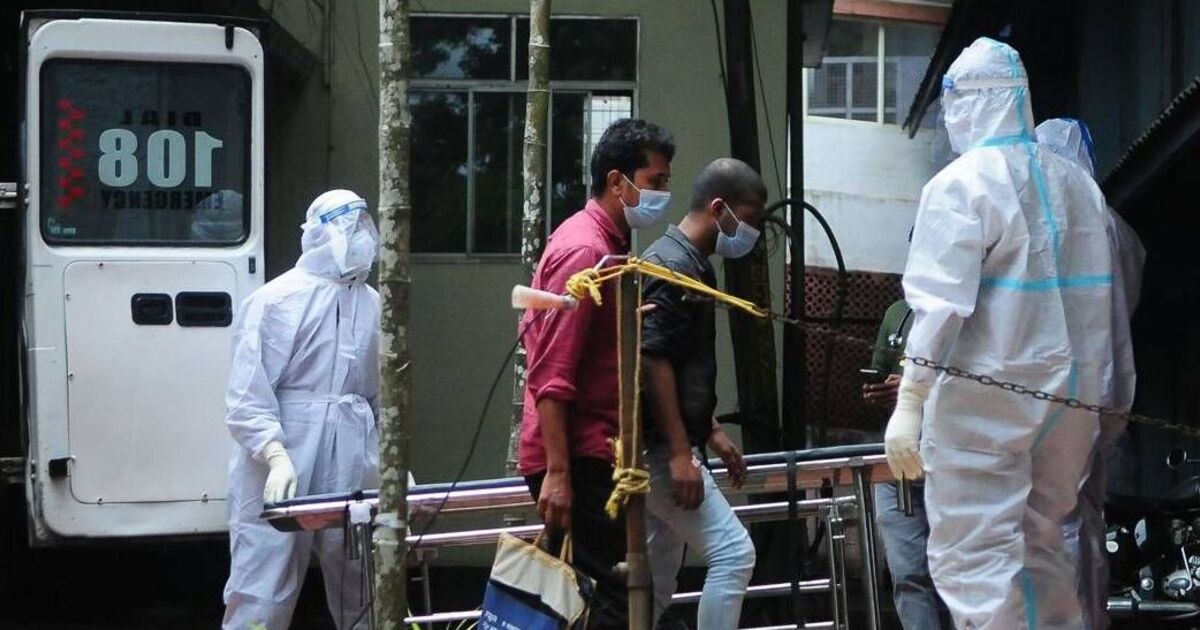A highly infectious bat-borne virus has claimed the life of a 24-year-old student, sparking fears among health authorities and causing widespread shutdowns at schools and universities in India. The lethal Nipah virus, known for causing severe fever and brain swelling, is believed to have a mortality rate exceeding 50 per cent among those it infects.
The World Health Organisation has marked Nipah as a “priority pathogen” due to its alarming fatality rate and potential for rapid spread, both through direct human contact and consumption of fruit tainted by infected bats. A previous outbreak in Kerala, India, in 2018 saw a staggering 90% death rate, with 17 fatalities and only two survivors.
In the wake of the student’s death, over 200 individuals in Kerala have been identified as potential contacts and are now under quarantine as health officials race to prevent another catastrophic Nipah virus outbreak. The student succumbed to the disease a mere five days after fever onset.
Tragically, he passed away before his blood sample, which confirmed the infection, returned from the laboratory.
Reports from The Hindu indicate that some educational institutions have either closed or implemented mandatory mask-wearing following the Nipah virus resurgence. Concerns have intensified as it was revealed that the deceased student visited four different hospitals while seeking care, prompting the tracking of hundreds of possible contacts.
A 24-year-old from near Wandoor in Kerala has become the second fatality due to the encephalitis-inducing Nipah virus in recent months, following the death of a 14-year-old boy just six miles away in Pandikkad this past June.
Over 200 individuals and healthcare workers have been identified as potential contacts at risk of infection. Kerala health officials are currently treating five people suspected of having contracted the Nipah virus.
In a bid to calm public concern, Kerala’s Health Ministry announced on Saturday that the majority of tests have come back negative, with a statement declaring: “As of September 21, 74 test results have returned negative so far.”
Despite the reassurances, Indian authorities are maintaining vigilance due to the possibility of more cases emerging. The World Health Organisation’s website notes: “The incubation period (interval from infection to the onset of symptoms) is believed to range from 4 to 14 days.
“However, an incubation period as long as 45 days has been reported. Most people who survive acute encephalitis make a full recovery, but long-term neurologic conditions have been reported in survivors. Approximately 20 per cent of patients are left with residual neurological consequences such as seizure disorder and personality changes.
“A small number of people who recover subsequently relapse or develop delayed onset encephalitis. The case fatality rate is estimated at 40 per cent to 75 per cent. This rate can vary by outbreak depending on local capabilities for epidemiological surveillance and clinical management.”
The initial symptoms of the Nipah virus, spread by bats and transferred to humans either through tainted sustenance or other human contact, manifest as fever, muscle pain, vomiting, sore throat, and headaches.
However, within days the situation can escalate alarmingly, with intensifying fevers and brain inflammation leading to respiratory difficulties, delirium, and comas.








Leave a comment